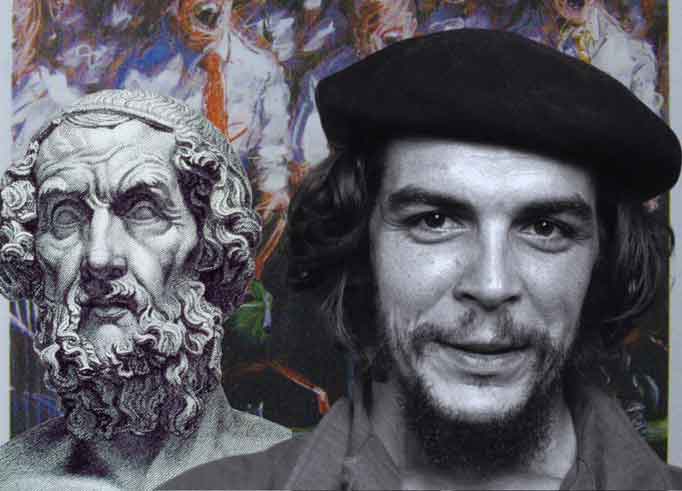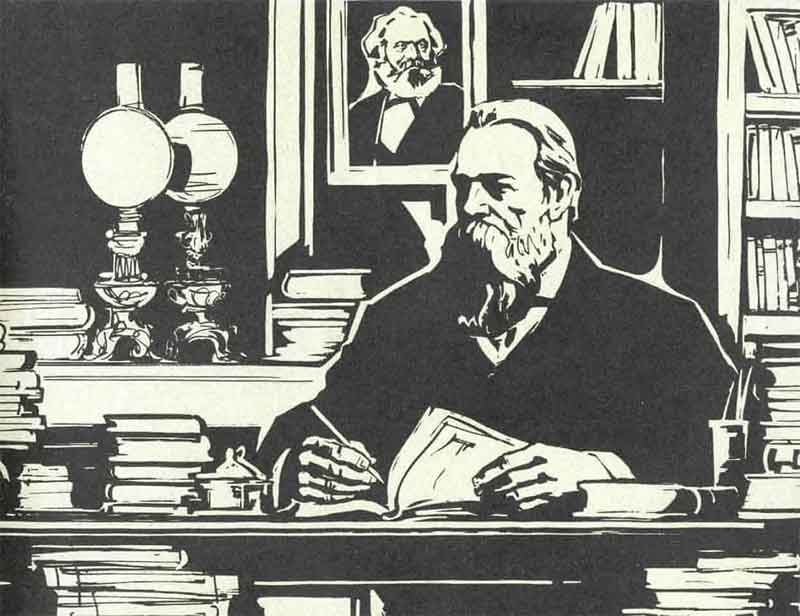
Moves on: nor all thy Piety nor Wit
Shall lure it back to cancel half a Line,
Nor all thy Tears wash out a Word of it.
– The Rubáiyát of Omar Khayyám
Death as the Nexus for the Possibility of Meaning in Human Life
To attain a peaceful state of eternity you must be liberated from the risk of losing what you love. Were such liberation possible, however, nothing would matter to you. You literally would not care. There would be no urgency to do anything or maintain love for anyone, since nothing of value could be lost (2019, 44).
In our contemporary logic of shallow hedonism (or non-Epicurean hedonism), where the satisfaction of desires and pleasures has raised itself into an ethical imperative, Odysseus’s actions reflect those of a madman. Within this contemporary logic, Odysseus’s actions are as unfathomable as Abraham’s killing of his son, Isaac, on God’s orders. Abraham’s action, as the Danish existentialist Søren Kierkegaard notes, is beyond the limits of comprehension, it is absurd and cannot be grasped as a “distinction among others embraced by understanding” (Kierkegaard 1985, 75).
Within the logic of contemporary bourgeois society our dominant mode of experience is having – we are what we have and what we consume (Fromm 1976, 26-7). In our capitalist hyper-consumerist societies, the Cartesian cogito ergo sum (I think, therefore I am) is turned into Cōnsūmere ergo sum (I consume; therefore, I am). The world is turned into a big “theater of consumption,” where meaningless enjoyment – whose real and well-hidden telos is the realization of profit obtained in the consumed commodities –becomes life’s prime want (Mbembe 2004, 394). An Island of infinite pleasure would seem, within the confines of this mode of relationality and irrational rationality, the purest form of good – a heavenly Island.
But it isn’t enough for Odysseus. Why?
Well, not only are there things that matter more than pleasure (if you wish, think of a hierarchy of values, some of the higher ones which are inaccessible in Calypso’s Island), such as honor, loyalty, family, etc., but the possibility of anything mattering at all within the confines of immortality is impossible. Odysseus’s life on the Island might have been pleasureful, but – insofar as it was sustained within conditions of immortality – it would have also been meaningless.
Only when the ever-present reality of our finitude is the background of all our actions can life obtain meaning. Death, that which Martin Heidegger called “the possibility of the impossibility of any existence at all,” is the nexus through which meaning can emerge in our life (1962, 307). It is the fragile character of our lives which functions as the conditions for the possibility of meaning.
Odysseus’s struggle to leave the Island is a struggle for life, for family and honor, but most importantly, for a return to the finitude which underlays our being-in-the-world and provides us with the conditions for living meaningful, truly human lives.
As Wolfgang Petersen’s 2004 masterpiece Troy has Achilles (played by Brad Pitt) say: “The gods envy us. They envy us because we’re mortal, because any moment may be our last. Everything is more beautiful because we’re doomed. You will never be lovelier than you are now. We will never be here again.”
The Crisis of Meaning and Bourgeois Finitude
We know we are not immortal. In fact, in our hyper-consumerist societies, the primacy of shallow hedonism is often rooted in a deep sense of our mortality. For instance, just a few years ago the acronym that grasped the zeitgeist of the U.S. was ‘YOLO,’ which stood for You Only Live Once. Under this motto, pleasure-centered licentiousness was legitimized. After all, why shouldn’t I enjoy myself to the fullest if I only live once?
But this sense of mortality has not, and (under the conditions in which it exists) cannot, provide the fertile ground needed for us to create meaning in our lives. We live in societies riddled with depression, anxiety, stress, etc. As the young Karl Marx had already observed by 1844, capitalism systematically alienates us from our labor, its product, our fellow human beings, nature, and from our species-essence (gattungswesen, by which he meant our ability to creatively objectify ourselves onto nature through our labor).[1] These are profound crisis at the human level (crisis comes from one of the Greek words for separation, krísis), and pervade our lebenswelt (life-world) or forms of being-in-the-world under our current capitalist-imperialist mode of life.
In many ways, a lot of these social-psychological ills have been normalized. As Dr. Gabor Mate shows in The Myth of Normal, even things like chronic illness, which in many cases can be traced back to stress patterns formed out of the habits people are thrusted into by the dominant order, are anything but normal – in fact, they are “profoundly abnormal” in just about every way possible (Mate 2022, 7). Trauma (both its big T and small t iterations) is essentially rooted, as Dr. Mate notes, in a “fracturing of the self and of one’s relationship to the world” (Mate 2022, 23). This is, in essence, another form of the same crisis Marxism has explained, condemned, and combatted since the middle of the 19th century.
In the midst of our alienated, exploited, and oppressed mode of existence, the form of life we live in must, in order to successfully finish the cycle of capital accumulation for which we were exploited in the first place, bombard us with advertisements destined to make us Homo consumericus in those few hours of the days were – although feeling the lingering affects of the work day – we are not directly getting exploited. The consumption of advertisements – which studies have shown to take up, on average, four years of our lives – is a form of consumption which proliferates our desires to consume. It is the equivalent of drinking Coca-Cola, a drink shown to dehydrate us further, in order to quench our thirst.
Additionally, since we often can’t afford this (wages have stayed low, prices and job precarity have risen), we are forced to turn to borrowing to pay for what we consume. The American working class, indubitably, is amongst the most indebted in the history of humanity. This form of debt-slavery which characterizes the lives of the modern American proletariat and reproletariat (i.e., the section of the last century’s middle-classes which have fallen back to precarity and instability), is a form of what Marx calls in the third volume of Capital the “secondary exploitation… which runs parallel to the primary exploitation taking place in the production process itself” (Khrachvik 2024; Marx 1974, 609). This has ushered into world-history a new form of superexploitation within the metropole itself, where its working masses are not only exploited (direct, primary exploitation) but cripplingly indebted (secondary exploitation), and therefore, super, or doubly, exploited.
How can any meaning arise in lives plagued by alienated work and meaningless consumption? It is not enough to show that we are dealing, as a society, with a deep crisis of meaning. Viktor Frankl, for instance, already described in the middle of the last century through many widely read and celebrated books the universal character of meaninglessness in modern bourgeois society (Frankl 1985, 164). But is this recognition enough? Must we not inquire as to its origins? Must we not explain, and not just describe these crises?
A scientific explanation of these pervasive social-psychological ills would have, as Dr. Mate notes, “revolutionary implications” (Mate 2022, 8). The question would be, can the sciences in these fields (especially its mainstream trends), be able to overcome what the Marxist scientists Richard Levins and Richard Lewontin have called their “Cartesian reductionism” (Levins and Lewontin 1985, xii)? Can they move away from bourgeois philosophical assumptions which divide mind and body, individual and society, which observe things as dead and static entities, and which reify them from the larger totalities whose existence in they presuppose? In short, can these sciences adopt – either consciously or not – the materialist dialectic and its focus on universal motion, interconnection, contradiction, totality-analysis, etc.? These are the foundations through which we may reproduce the concrete concretely in thought, and hence, understand the world in all its complexities (Garrido 2022, 34-40).
A central obstacle in this task is not only the bourgeois character of the institutions they’re forced to operate through, but, as an ideological reflection of this, their adoption of the view that they are (and this is especially true in the ‘hard’ sciences) somehow above ideology and philosophy. What and ideologically loaded sentiment! We are back to Plato’s cave, back to prisoners who take the conditions of their particular enchainment to be the whole of reality itself. The truth is, while the sciences often fancy themselves to be ‘above’ philosophy and ideology, “in most cases,” as Friedrich Engels had noted, they are “slaves to precisely the worst vulgarized relics of the worst philosophies” (Engels 2012, 213). “Nothing evokes as much hostility” in scientists, Levins and Lewontin write, “as the suggestion that social forces influence or even dictate either the scientific method or the facts and theories of science” (Levins and Lewontin 1985, 4). A re-grounding of the mainstream sciences in a consistent dialectical materialist worldview, along with the uprooting of the profit motive that dictates its telos in our mode of life, would readily provide a richer, more comprehensive, and – necessarily – a more revolutionary understanding of our crisis of meaning and what overcoming it entails.[2]
Finding Meaning in the Struggle for a New World
This is where a lot of the commentary (especially critical in character) on the crisis of meaninglessness misses the mark. It merely describes the way the crisis looks by the time it gets to the social-psychological level, remaining ‘cultural’ in its critique through and through, never explaining the underpinning motion and contradictions producing that which they critique. The superiority of the Marxist outlook (i.e., dialectical materialism) is found in its ability to do precisely this – to explain and not just describe, to show the underlying foundations producing movement at the surface, and not simply taking that surface for the whole of reality.
It is important to note, however, that our contemporary crisis of meaning doesn’t necessarily entail that meaningful lives are impossible. In the fringes of quotidian society there are still people who, like Odysseus, find meaning in their family life, in tending to familial duties. There are also, like Odysseus, people who may be rooted in a strong sense of honor, in a deep drive for greatness in their respective fields. This is certainly a reality for many athletes, whose striving within their sports provides a source of meaning in their lives.
However, no greater meaning can be derived than that which arises from fighting against a world which systematically produces these crises of meaning. The greatest and most memorable human beings in the history of our species have been those, like Socrates, Jesus, Simón Bolívar, John Brown, Frederick Douglass, Marx and Engels, José Martí, V. I. Lenin, Mao, W. E. B. Du Bois, Ho Chi Minh, Fidel Castro, Che Guevara, and many more, who have found their life’s purpose in the struggle to move humanity forward into a more rational and free world. There is, therefore, tremendous meaning to be found in the struggle against a world governed by exploitation, alienation, and oppression. A capitalist-imperialist order that has murdered tens of millions (four million in the Muslim world in the last two decades alone) and that is threatening humanity with nuclear Armageddon to sustain its hegemony, is worth making the object we commit our lives to destroying.
But a purposeful and meaningful life does not have as its only end destruction. We seek to destroy this order, not so that we can dance on the rumble, but so that the fetters it has set on humanity are destroyed. We seek to destroy not for destruction’s sake, but because what we destroy is itself a system, as the British Marxist William Morris called, of waste and destruction (Morris 1884). We destroy, in other words, so that we may construct a future which obliterates poverty, exploitation, plunder, war, oppression, alienation, meaninglessness, bigotry, etc. We destroy so that we may construct a world in which humanity can flourish, where people of all creeds may, as Che Guevara hoped, achieve their “full realization as a human creature” (Guevara 1969 162).
Footnotes
[1] For more on the development of the concept of alienation through Marx’s work, see my review article: “Karl Marx’s Writings on Alienation,” Monthly Review Online (June 11, 2022): https://mronline.org/2022/06/11/karl-marxs-writings-on-alienation-by-marcello-musto-reviewed-by-carlos-l-garrido/
[2] I have shown elsewhere how this poverty of outlook, conjoined with the material incentives of capitalism, has led to the utter failure of the sciences (the mainstream ones, there’s always good folks doing work that goes against the grain) to understand social-psychological ills such as depression (See: “The Failed Serotonin Theory of Depression: A Marxist Analysis”). An elaboration of these critiques is beyond the goals of this brief paper, I recommend interested readers to read the article referenced above from more of my work in that area.
Achille Mbembe, “Aesthetics of Superfluity,” Public Culture 16(3): 373–405.
Carlos L. Garrido, “Book Review: Karl Marx’s Writings on Alienation. By: Marcello Musto,” Monthly Review Online (June 11, 2022): https://mronline.org/2022/06/11/karl-marxs-writings-on-alienation-by-marcello-musto-reviewed-by-carlos-l-garrido/
Carlos L. Garrido, Marxism and the Dialectical Materialist Worldview: An Anthology of Classical Marxist Texts on Dialectical Materialism (Dubuque/Carbondale: Midwestern Marx Publishing Press, 2022).
Carlos L. Garrido, “The Failed Serotonin Theory of Depression: A Marxist Analysis,” Science for the People (September 09, 2022): https://magazine.scienceforthepeople.org/online/the-failed-serotonin-theory-of-depression-a-marxist-analysis/
Ernesto ‘Che’ Guevara, Selected Works of Ernesto Guevara (Cambridge: MIT Press, 1969).
Erich Fromm, To Have or to Be? (New York: Harpers and Row Publishers, 1976).
Friedrich Engels, Dialectics of Nature (London: Wellred Publication, 2012).
Gabor Mate and Daniel Mate, The Myth of Normal: Trauma, Illness and Healing In a Toxic Culture (London: Vermilion, 2022).
Karl Marx. Capital Vol. III (Moscow: Progress Publishers, 1974).
Martin Hägglund, This Life: Secular Faith and Spiritual Freedom (New York: Pantheon Books, 2019).
Martin Heidegger, Being and Time, trans. John MacQuarrie and Edward Robinson (San Francisco: Harpers Collins Publishers, 1962).
Noah Khrachvik, Reproletarianization: The Rise and Fall of the American Middle Class (Dubuque/Carbondale: Midwestern Marx Publishing Press, 2024 Forthcoming).
Richard Levins and Richard Lewontin, The Dialectical Biologist (Cambridge: Harvard University Press, 1985).
Søren Kierkegaard, Fear and Trembling (New York: Penguin Books, 1985).
Viktor Frankl, Man’s Search for Meaning (New York: Washington Square Press, 1985).
Willaim Morris, “A Factory as It Might Be,” Justice (May 17, 1884), 2, Retrieved from: https://www.marxists.org/archive/morris/works/1884/justice/10fact1.htm
Carlos L. Garrido is a philosophy teacher at Southern Illinois University, Director at the Midwestern Marx Institute, and author of The Purity Fetish and the Crisis of Western Marxism (2023), Marxism and the Dialectical Materialist Worldview (2022), and Hegel, Marxism, and Dialectics (Forthcoming 2024).















































